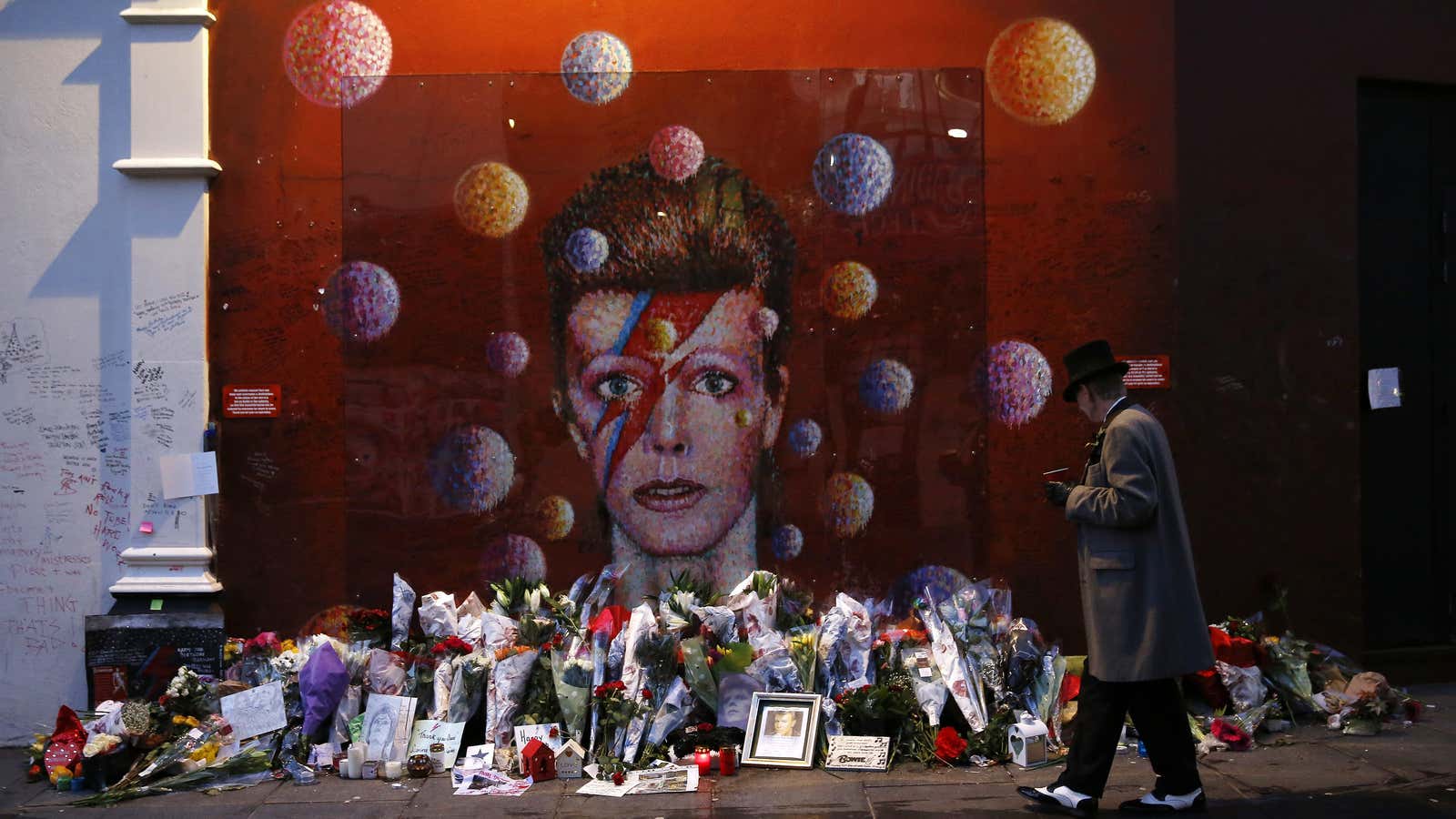HP Lovecraft is celebrated in the literature world for his otherworldly tales of monstrous beings wreaking havoc on the modern world, of primordial landscapes and ancient horrors. But the iconic fantasy writer, who spent much of his career unrecognized and living in poverty and obscurity, suffered from intense anxiety, self-doubt and paranoia, among other mental ailments. The commercial success that Lovecraft sought throughout his tenure as a writer did not come until after his early death at the age of 46.
Lovecraft is not alone in writing—or many other creative industries—regarding his chronic self-doubt. David Bowie once told a reporter that he felt “utterly inadequate” in the early stages of his career, and Lena Dunham has said that her lack of confidence led her to punish herself with unhealthy work hours and constant mental self-flagellation.
Many believe that doubt can sometimes be healthy, a sign of self-awareness. The infamous, beer-swilling author Charles Bukowski had a poignant take on the matter: “[B]ad writers tend to have the self-confidence, while the good ones tend to have self-doubt,” he once said.
But Patrick Carroll, an assistant professor of psychology at Ohio State University who has studied the effects of self-doubt, told me that there is a crucial difference between what he calls “idea doubt”—doubting that one’s particular book, film or anything else isn’t quite up to standards—and more general self-doubt, or a fundamental belief that you are not a worthy individual.
These self-harming beliefs, he says, are common among creative types, whose self-critical mechanisms can sometimes be put into overdrive.
“There are a lot of tortured artists that have potential that never make it to that potential… they can’t get past that phase of self-doubt,” Carroll said. “They go from, ‘I don’t know about this idea’ to ‘I don’t know about myself’, and they get stuck there.”
Carroll explained that self-doubt is normally a healthy thing, that creative individuals often rely on that voice in the back of their head to evaluate their ideas and come up with better iterations of whatever they may be working on. “If its doubt about an idea, it actually encourages divergent thinking, non-linear thought, and may inspire you to extend existing ideas in new and exciting ways.”
Those that don’t experience self-doubt, he said, exist in a worrying state of the psychological spectrum. They are the hyper-confident megalomaniacs that start wars, lead countries into financial crises and, sometimes, become president of the United States.
“Having no doubt leads you never to question the thoughts running through your head, and all of us experience doubt from time to time,” he said. “If you didn’t, it would be maladaptive. It’s just a matter of—are those doubts chronic? Because once they become chronic, they can become problematic.”
Leon Seltzer, a private psychologist based in Del Mar, California, was a bit more dismissive when it came to self-doubt’s role in the creative process. He told me that self-doubt, in fact, had no positive benefits, that it was an unfortunate by-product of being human, like hemorrhoids or cavities.
“Self-doubt to me is nothing but a serious disadvantage,” he said. “Self-doubt leads either to avoidance, fear of failure, because you don’t think you’re confident. Or it leads to procrastination.”
Seltzer said self-doubt—like too many other mental hurdles we encounter as adults—often reaches back to childhood, where overbearing parents may have piled unrealistic expectations onto an innocent child.
“If you get a message from your parents that your performance is inadequate, and they install self-doubt in you,” he said, “it has a reason for being, because you give authority to your parents, and maybe they had high expectations of you.
“So you see yourself as not good enough, but it doesn’t have any adaptive purpose to it. In fact, it’s likely to be very harmful, because you might avoid trying certain things that your parents might have convinced you that you would fail at.”
Ultimately, for Seltzer and those who are hesitant to romanticize the notion of self-doubt, it has no net benefits for the well-adjusted adult, and is an obstacle that must be conquered methodically.
Still, whether it’s helpful or not, self-doubt is endemic and a part of many creative processes, whether you’re a writer working on a novel or a teacher planning your first week back at school. If it’s such a fundamental part of being human, what’s the best way to manage it? Realistic goals, according to Seltzer.
“One success lifts your self-confidence, it makes you more willing to try a bigger challenge,” he said. “Success breeds success… It’s trying something you think is a little bit above your grade level and in all probability succeeding at it, unless you snatch defeat from jaws of victory because what you want to do is confirm your negative self-image.”
But if it’s a more internalized form of self-doubt, a paralyzing voice that tells you that you’re not good enough, or that you’re not smart enough to be working in your industry, that may require a little bit more digging and soul-searching—likely with the help of a professional.
“If you have serious self-doubt,” Seltzer explained, “in other words, deep down inside you think you’re a factory second, you think that you’re not good enough, there’s really nothing that can tackle that other than seeing a first-rate therapist. You can’t talk yourself out of that.”
Lovecraft, who died of cancer, came from a tortured upbringing; both his father and mother suffered from severe mental illness. Therapy may have have helped him contend with his self-doubt, not to mention his racism, but it’s easy to also wonder what impact it might’ve had on the horrific literary creations that earned him his posthumous fame and mark on history.
